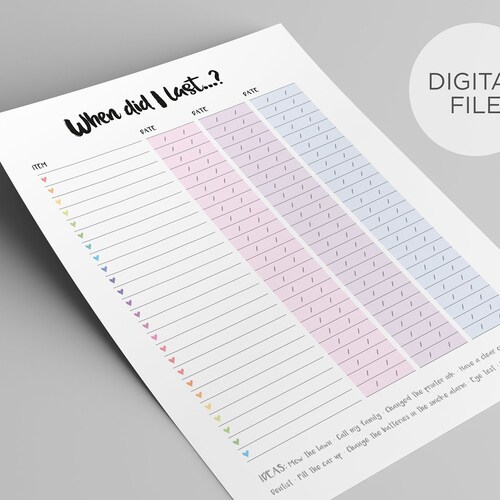Show Last Printable Character From A File 2 Answers Sorted by 7 You can anchor the search at the end of the line and count however many extra characters you want grep X will look for X as the second last character grep X 4 will look for X as the fifth last character etc Share
10 Answers Sorted by 40 You can do man ascii to see the whole set of ascii characters or you can just run the command ascii ascii Usage ascii dxohv t char alias t one line output d Decimal table o octal table x hex table h This help screen v version information Prints all aliases of an ASCII character 2 Answers would remove the last 10 bytes from command output c bytes K print the first K bytes of each file with the leading print all but the last K bytes of each file Since you specifically mention that the 10 characters to be removed would occur on one line you could use sed too
Show Last Printable Character From A File
 Show Last Printable Character From A File
Show Last Printable Character From A File
https://3d-model.org/uploads/posts/2022-09/1664469378_1.jpg
More importantly you don t need to do any of this at all For the most part Unix path resolution does not care about duplicated slashes so path to a file is just as valid as path to a file In scripts you can take advantage of this
Templates are pre-designed documents or files that can be used for various purposes. They can conserve effort and time by providing a ready-made format and design for developing different kinds of content. Templates can be used for individual or expert jobs, such as resumes, invites, leaflets, newsletters, reports, discussions, and more.
Show Last Printable Character From A File

Sayori Character File Completenimfa

When Did I Last Printable Habit Tracker Tracker Printable Etsy

Dnd 5e Printable Character Sheet That Are Persnickety Lucas Website
RuthAnne Strong I Am So Lucky To Know You

Look Sayori I Will Remove Your Character File With Maaagic My What

Mndy made Spooky Saturday One Last Printable

https://unix.stackexchange.com/questions/550235
2 Answers Sorted by 17 cut by itself doesn t have the concept of the last N characters on a line However if you combine this with the rev program you can reverse each line select the first N characters and then reverse the result to get things back to the original order rev cut c 1 3 rev

https://unix.stackexchange.com/questions/163481
The command tail often used to show the last lines of a file has an option c bytes which seems to be just the right tool for this printf 123456789 tail c 3 789 When you are in a shell it makes sense to use a method like in the answer of mikeserv because it saves starting the process for tail

https://stackoverflow.com/questions/57898981
Calling fseek fptr 1 SEEK END is the correct way to seek to the last character that s actually in the file That s the same as fseek fptr 4 1 SEEK SET or fseek fptr 3 SEEK SET In general it a good idea to always check for EOF

https://stackoverflow.com/questions/17542892
To get the last character you should just use 1 as the index since the negative indices count from the end of the string echo str 1 The space after the colon is REQUIRED

https://stackoverflow.com/questions/30570946
w include all whitespace By default tab and space characters are included in the strings that are displayed but other whitespace characters such a newlines and carriage returns are not The w option changes this so that all whitespace characters are considered to be part of a string
1 I am trying to figure out why using C function strtok is not working properly for me Here s the problem I have a file which contains two types of information headers and text descriptions Each line in the file is either a header or part of a text description A header starts with FILE f fopen f text rb if f 0 throw 0 try if fseek f 1 SEEK END 0 throw 0 char last 1 if fread last 1 1 f 1 throw 0 catch fclose f throw fclose f I made some changes to your code to print the last character Here is test c as a sample
include include int main void char file name 50 char inp something3 strncpy file name inp sizeof inp printf s n file name strlen returns the length of a string